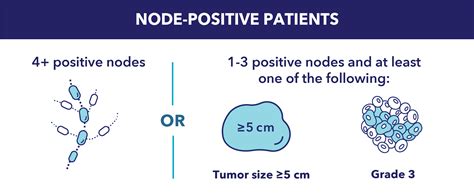Verzenio Used: Treats Metastatic Breast Cancer

Metastatic breast cancer, a condition where breast cancer has spread to other parts of the body, poses significant challenges for patients and healthcare providers. The complexity of this disease necessitates a multifaceted approach, incorporating various treatment options to manage symptoms, slow disease progression, and improve quality of life. Among the arsenal of treatments available, Verzenio (abemaciclib) has emerged as a promising agent, specifically designed to target certain types of metastatic breast cancer.
Understanding the Mechanism of Verzenio

Verzenio works by inhibiting cyclin-dependent kinases 4 and 6 (CDK4 and CDK6), which are enzymes crucial for cell division. In cancer cells, these enzymes are often overactive, leading to uncontrolled cell proliferation. By blocking CDK4 and CDK6, Verzenio effectively slows down the growth and spread of cancer cells, providing a therapeutic benefit for patients with metastatic breast cancer.
Clinical Efficacy and Approval

The approval of Verzenio for the treatment of metastatic breast cancer was based on the results of several clinical trials, which demonstrated its efficacy in improving progression-free survival (PFS) and overall response rate (ORR) when used in combination with other therapies. For instance, in patients with HR-positive, HER2-negative metastatic breast cancer, the combination of Verzenio with an aromatase inhibitor or fulvestrant showed significant benefits in delaying disease progression compared to the use of these therapies alone.
Key Clinical Trials
- MONARCH 2 and MONARCH 3 Trials: These studies evaluated the efficacy and safety of Verzenio in combination with fulvestrant or an aromatase inhibitor, respectively, in patients with HR-positive, HER2-negative metastatic breast cancer. The results showed a statistically significant improvement in PFS for the Verzenio-containing regimens.
Integration into Treatment Plans
The incorporation of Verzenio into treatment plans for metastatic breast cancer is based on the patient’s specific disease characteristics, medical history, and previous treatments. For patients with HR-positive, HER2-negative disease, Verzenio can be considered as a first-line or subsequent therapy, depending on the clinical scenario. The decision to use Verzenio, like any cancer therapy, involves a careful discussion between the patient and their healthcare provider, weighing the potential benefits against the possible side effects.
Managing Side Effects
While Verzenio offers a valuable treatment option, it is not without side effects. Common adverse reactions include diarrhea, neutropenia, fatigue, and nausea. However, with appropriate management strategies, including dose adjustments and supportive care, many patients can tolerate Verzenio and derive significant benefit from its use.
Future Directions and Ongoing Research
The development of Verzenio represents a significant advancement in the treatment of metastatic breast cancer. Ongoing research continues to explore its potential in various settings, including its use in combination with other targeted therapies or immunotherapies. Furthermore, studies aiming to identify biomarkers that predict response to CDK4/6 inhibitors like Verzenio are underway, which could lead to more personalized treatment approaches in the future.
Expanding Treatment Options
As the landscape of breast cancer treatment continues to evolve, the role of Verzenio is likely to expand. Investigations into its efficacy in earlier stages of breast cancer, such as in the adjuvant setting, may offer new hope for patients. Additionally, the exploration of Verzenio in combination with therapies targeting other pathways involved in breast cancer progression could lead to the development of more effective treatment regimens.
Conclusion

Verzenio has established itself as a critical component in the management of metastatic breast cancer, particularly for patients with HR-positive, HER2-negative disease. Its mechanism of action, clinical efficacy, and integration into current treatment paradigms underscore its value. As research progresses and the understanding of breast cancer biology deepens, the potential of Verzenio and other CDK4/6 inhibitors to improve outcomes for patients will continue to grow, offering new avenues for treatment and hope for those affected by this complex and challenging disease.
What is Verzenio used for in the treatment of breast cancer?
+Verzenio (abemaciclib) is used to treat HR-positive, HER2-negative metastatic breast cancer. It works by inhibiting certain enzymes involved in cancer cell growth, thereby slowing down the progression of the disease.
How does Verzenio work?
+Verzenio inhibits cyclin-dependent kinases 4 and 6 (CDK4 and CDK6), which are enzymes crucial for cell division. By blocking these enzymes, Verzenio slows down the growth and spread of cancer cells.
What are the common side effects of Verzenio?
+



